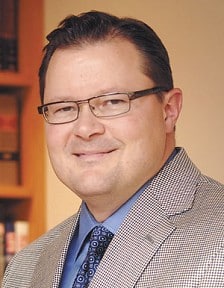Insurance agents get more lenient professional standard

An Iowa Supreme Court ruling that set a stricter standard for insurance agents’ professional responsibilities to their clients was recently nullified by the Legislature.
In an omnibus insurance bill signed by Gov. Terry Branstad on April 19, legislators revoked the Dec. 30 ruling that would have required a jury to determine in disputed cases whether an agent owed a higher duty to a client than simply selling him or her the requested policy.
The Independent Insurance Agents of Iowa Inc. claims the two-paragraph provision in Senate File 406, which abrogated the court’s ruling “to the extent that it would impose higher and greater responsibilities on insurance producers” than under previous law, will avert a flood of professional liability lawsuits against insurance agents. However, the Iowa Association for Justice, which represents the state’s trial attorneys, says the legislation hurts consumers because it provides for little recourse against agents who haven’t met their clients’ expectations.
Alan Olson, the president of the Iowa Association for Justice, said the two organizations had at one point reached a deal for compromise language in the bill.
“(The agents) wanted to have language that made it more manageable and predictable as to what would happen (if an agent provided risk management advice),” Olson said. “And we wanted to make sure that agents’ customers would have a course of action to pursue if an agent promised something and then didn’t provide it.”
However, “when the insurance companies found out the agents and the lawyers had made a deal and not included them, they rallied and threw out that language,” he said. “We were no match for the kind of horses the insurance companies had at the Legislature.” The bill passed the House of Representatives on a vote of 60-35; the Senate version passed 48-0.
Scott Sundstrom, legislative counsel to the Federation of Iowa Insurers, said the language passed by the Legislature “was reached without us being involved at all.”
“The first I actually heard any of this was when the bill had passed without this language,” Sundstrom said. “We thought the Senate had passed a good bill, and we asked the House to pass the same bill. Basically, it just restores Iowa’s law to what it had been for a quarter century,” he said, referring to a 1984 decision in Sandbulte v. Farm Bureau Mutual Insurance Co. “I think that law has worked well for Iowa consumers and insurance agencies.”
In Langwith v. American National General Insurance Co., the plaintiff, Dennis Langwith, claimed that his insurance agent, Janet Fitzgerald, should have provided him and his wife with better advice about how to provide coverage for their son, who had been dropped from their policy after his driver’s license was suspended. The ruling outlined several factors a jury should consider in determining the agent’s degree of liability in such cases, among them whether an agent represents himself or herself as a specialist or consultant, the agent’s past dealings with the client and the client’s knowledge and sophistication.
“It was a horribly decided case,” said Bob Skow, CEO of the Independent Insurance Agents of Iowa, who said the justices overstepped their authority with their decision. “In one swift move, the Supreme Court had undone years of law,” he said. “We think the Legislature responded appropriately.”
Without the legislative provision, agents would have been subject to many more lawsuits, Skow said, in a legal environment in which agents are already facing steep increases in professional liability coverage. With the legislation, previous case law remains in place that set a “reasonably high standard” for agents, but “not so high a standard that it would create havoc in the marketplace,” he said.











